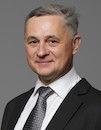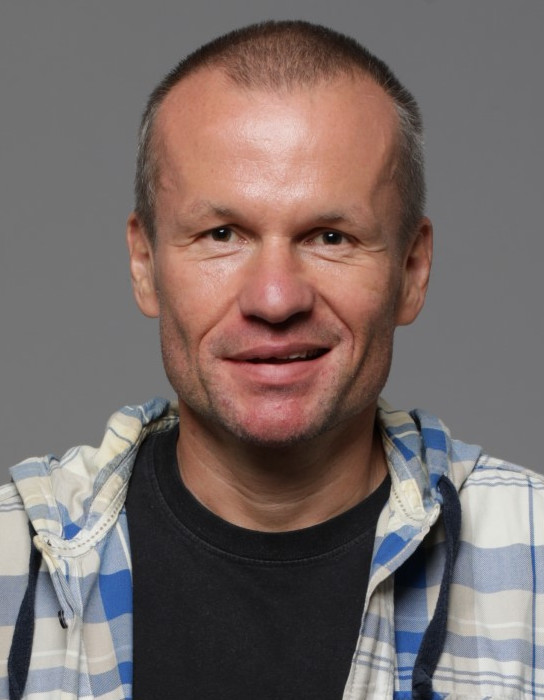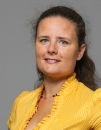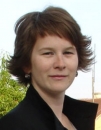Multisensor Systems and Locomotion
Data is displayed for academic year: 2023./2024.
Lectures
Laboratory exercises
Course Description
A notion of robotics as intelligent connection between perception and action. Analogy with biosystems. Vision sensors. Optoelectronic methods of measurement and acquisition of scenes. Photogrammetric transformations and algorithms. Modelling of the environment. Measurement of forces, of pressure distribution and tactile sensors. Other sensor modalities including electromyography. Integration of sensor modalities. Kinematics, biomechanics and modelling of movement in biosystems. Locomotion. Medical and sportive applications and diagnostics. Artificial muscle: realisability. Prostheses: cybernetic and motor aspects and functionality. Simulation of movement and virtual reality.
Study Programmes
University graduate
[FER3-HR] Audio Technologies and Electroacoustics - profile
Elective Courses
(1. semester)
(3. semester)
[FER3-HR] Communication and Space Technologies - profile
Elective Courses
(1. semester)
(3. semester)
[FER3-HR] Computational Modelling in Engineering - profile
Elective Courses
(1. semester)
(3. semester)
[FER3-HR] Computer Engineering - profile
Elective Courses
(1. semester)
(3. semester)
[FER3-HR] Computer Science - profile
Elective Courses
(1. semester)
(3. semester)
[FER3-HR] Control Systems and Robotics - profile
Elective Courses
(1. semester)
(3. semester)
[FER3-HR] Data Science - profile
Elective Courses
(1. semester)
(3. semester)
[FER3-HR] Electrical Power Engineering - profile
Elective Courses
(1. semester)
(3. semester)
[FER3-HR] Electric Machines, Drives and Automation - profile
Elective Courses
(1. semester)
(3. semester)
[FER3-HR] Electronic and Computer Engineering - profile
Elective Courses
(1. semester)
(3. semester)
Elective Courses of the Profile
(1. semester)
(3. semester)
[FER3-HR] Electronics - profile
Elective Courses
(1. semester)
(3. semester)
[FER3-HR] Information and Communication Engineering - profile
Elective Courses
(1. semester)
(3. semester)
[FER3-HR] Network Science - profile
Elective Courses
(1. semester)
(3. semester)
[FER3-HR] Software Engineering and Information Systems - profile
Elective Courses
(1. semester)
(3. semester)
[FER2-HR] Computer Science - profile
Recommended elective courses
(3. semester)
[FER2-HR] Control Engineering and Automation - profile
Recommended elective courses
(3. semester)
[FER2-HR] Electronic and Computer Engineering - profile
Recommended elective courses
(3. semester)
[FER2-HR] Information Processing - profile
Recommended elective courses
(3. semester)
Learning Outcomes
- define a biological phenomenon of human locomotion from an interdisciplinary viewpoint
- explain acquisition and interpretation of quantitative indices of human locomotion
- apply modern engineering systems for measurement, analysis and diagnostics of human movement
- identify and classify the states of human locomotion based on measurement quantities
- create technical protocols as a support to analysis and diagnostics of human movement, in medicine and/or sports
- select and recommend modern engineering systems/devices for biomechanical evaluation of human locomotion, healthy and/or pathological
Forms of Teaching
Lectures
Ex cathedra, PP presentations, occasional short video presentations.
Field workCybex Centre for Isokinetics, Voćarska 106, Zagreb; Cognitive and Experimental Neurophysiology Laboratory, Neurology Clinics, Clinical Hospital Centre Zagreb.
LaboratoryDemonstration of procedures of measurement, analysis and diagnostics of human locomotion in a human movement biomechanics laboratory (Faculty of Kinesiology).
OtherInvolvement in lecture.
Grading Method
| Continuous Assessment | Exam | |||||
|---|---|---|---|---|---|---|
| Type | Threshold | Percent of Grade | Threshold | Percent of Grade | ||
| Class participation | 50 % | 10 % | 50 % | 10 % | ||
| Mid Term Exam: Written | 50 % | 45 % | 0 % | |||
| Final Exam: Written | 50 % | 45 % | ||||
| Exam: Written | 50 % | 45 % | ||||
| Exam: Oral | 45 % | |||||
Week by Week Schedule
- Introduction
- Biological and artificial vision
- Locomotion biomechanics and inverse dynamic approach
- Automated optoelectronic kinematic and kinetic measurement system
- Pedobarography
- Kinesiological electromyography I
- Kinesiological electromyography II
- Midterm exam
- Skeletal muscle biomechanics
- Isokinetic systems
- Biomechanical measurement system in gait analysis
- Evoked potentials in motor functions diagnostics
- Virtual reality and locomotion
- Conclusion
- Final exam
Literature
For students
General
ID 222478
Winter semester
5 ECTS
L1 English Level
L1 e-Learning
30 Lectures
0 Seminar
0 Exercises
15 Laboratory exercises
0 Project laboratory
0 Physical education excercises
Grading System
90 Excellent
75 Very Good
60 Good
50 Sufficient


 Pristupačnost
Pristupačnost




